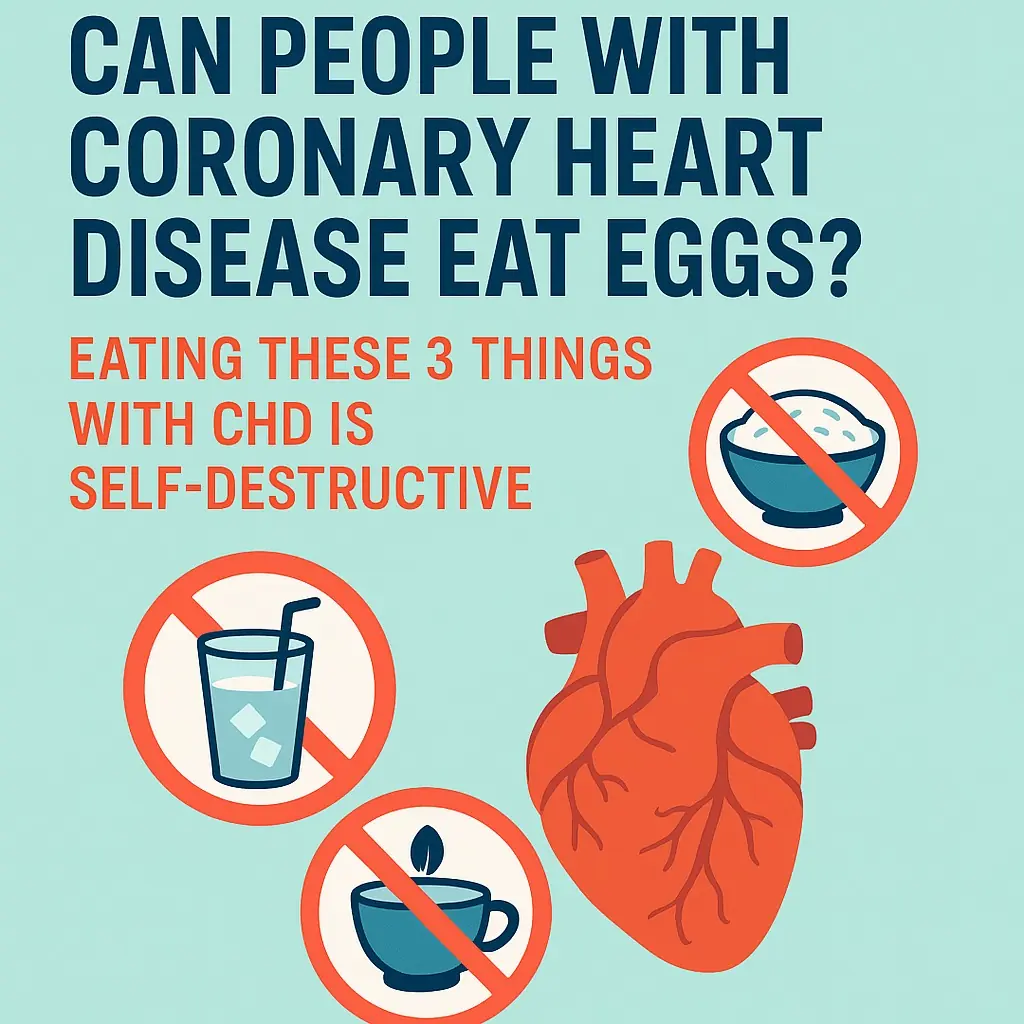
Why Are You Passing Gas So Often? 5 Health Issues That Might Be Behind It – Don’t Ignore the Signs
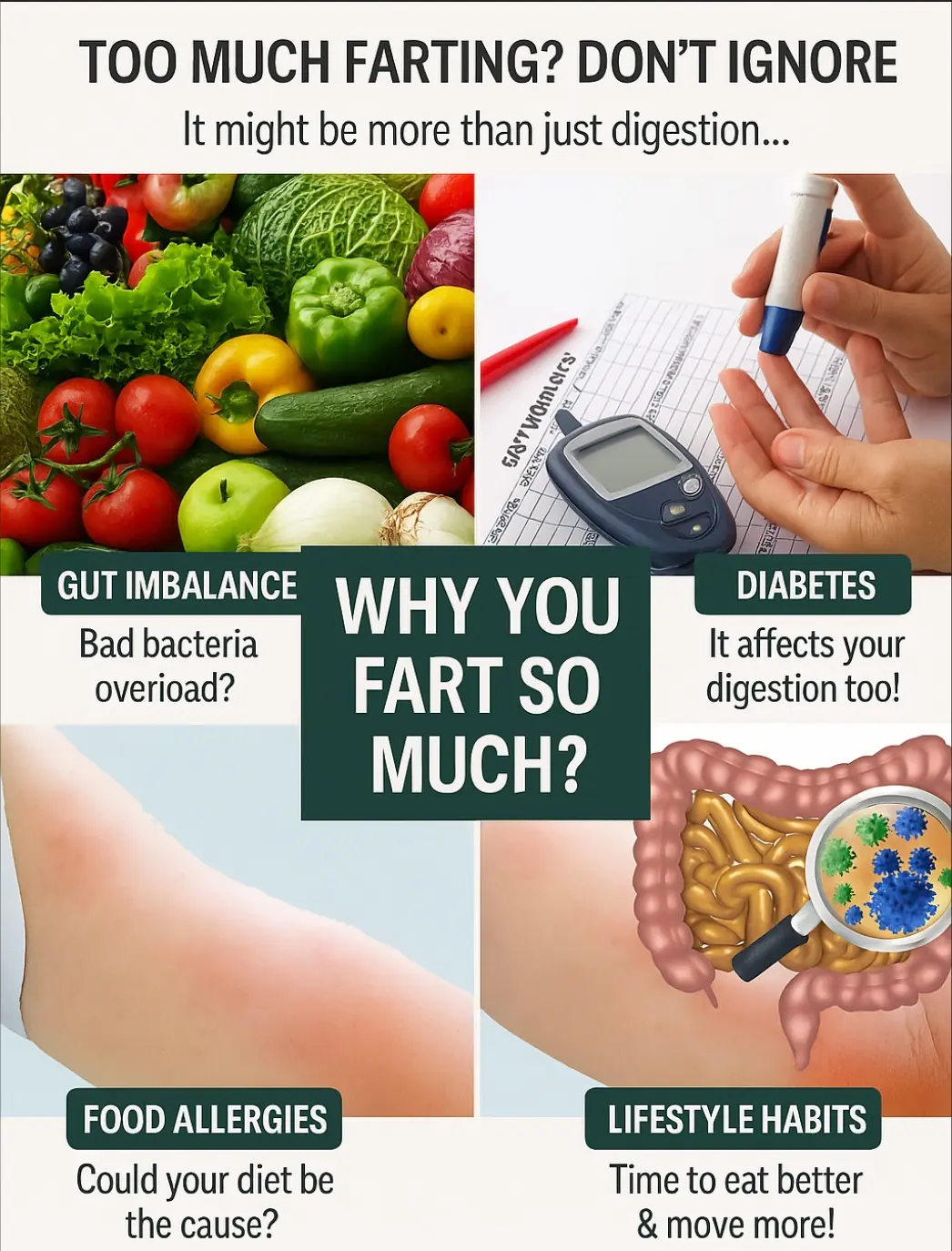
Passing gas — or flatulence — is a natural part of life and a sign that your digestive system is working. Everyone does it, often without even realizing it. But if you find yourself passing gas excessively throughout the day, it could be more than just an awkward moment — it might be your body’s way of signaling an underlying health issue.
In this article, we’ll explore the common causes of excessive gas and highlight five possible medical conditions that could be contributing to it. While this guide is intended to inform, it should not replace professional medical advice. If you’re experiencing persistent digestive issues, consult a healthcare provider for a thorough evaluation.
1. Digestive System Imbalances
Gut Microbiome Disruption
Your digestive tract is home to trillions of bacteria, many of which are beneficial for breaking down food and absorbing nutrients. However, an imbalance in this gut microbiome — often caused by stress, poor diet, illness, or antibiotics — can lead to excessive gas production.
What to do:
-
Add more fermented foods like yogurt, kefir, sauerkraut, or kimchi to your diet.
-
Consider taking a high-quality probiotic supplement.
-
Reduce sugar and processed food intake to prevent feeding harmful bacteria.
Indigestion (Dyspepsia)
When your digestive system struggles to break down food properly, undigested particles ferment in the gut, producing gas. This can cause bloating, discomfort, and frequent flatulence.
Symptoms to watch: Abdominal pain, nausea, and a feeling of fullness after eating.
Helpful tips:
-
Avoid greasy, spicy, and overly fatty meals.
-
Eat smaller portions and chew slowly.
-
Over-the-counter digestive enzymes may help, but talk to a pharmacist or doctor before use.
2. Food Allergies and Sensitivities
Certain foods might not sit well with your body, even if you're not fully allergic. Food sensitivities and intolerances can trigger gas, bloating, and changes in bowel habits.
Common culprits include:
-
Dairy (lactose intolerance)
-
Gluten (celiac disease or non-celiac gluten sensitivity)
-
Legumes like beans and lentils
-
High-fructose corn syrup and artificial sweeteners
What to do:
Try an elimination diet by removing potential triggers for 2–4 weeks, then reintroduce them one at a time while monitoring symptoms. Working with a registered dietitian can provide valuable guidance.
3. Underlying Medical Conditions
Diabetes
Many people don’t realize that diabetes, especially when poorly managed, can affect the digestive tract. Diabetic neuropathy — a form of nerve damage — can slow down digestion (a condition called gastroparesis), leading to bloating and excess gas.
Managing it:
-
Keep your blood sugar within target range.
-
Eat smaller, more frequent meals.
-
Stay physically active and talk to your doctor about medications that improve gut motility.
Hyperthyroidism (Overactive Thyroid)
An overactive thyroid speeds up your metabolism, and that includes how quickly food moves through your intestines. The result? More gas, looser stools, and increased bathroom visits.
Other symptoms: Rapid heartbeat, unexplained weight loss, anxiety, and excessive sweating.
Treatment options: Anti-thyroid medications, radioactive iodine therapy, or, in some cases, surgery.
4. Side Effects of Medication
Certain medications can alter your digestion and contribute to bloating and gas.
Common offenders include:
-
Antibiotics: These can disrupt your gut flora balance.
-
Antidepressants: Some affect gut motility.
-
Antihistamines: Can slow digestion.
If you notice a change in your digestive health after starting a new medication, don’t stop it abruptly — speak with your healthcare provider about alternatives or solutions.
5. Lifestyle Habits That Make a Difference
Adjusting Your Diet
Even healthy foods can cause gas in some individuals. Consider limiting:
-
Cruciferous vegetables (like broccoli and cauliflower)
-
Carbonated beverages
-
High-fiber beans and lentils (at least temporarily)
Instead, opt for gut-friendly choices like bananas, oats, and well-cooked vegetables. Drinking peppermint tea may also help reduce bloating.
Stay Active
Regular physical activity stimulates digestion and helps gas move through your system faster, reducing discomfort. Even a brisk 20-minute walk after meals can make a significant difference.
Practice Good Hygiene
Hygiene isn't just about washing hands — it's also about food safety. Improper food handling can lead to bacterial infections that disrupt digestion.
Helpful habits:
-
Wash produce thoroughly.
-
Avoid street foods with questionable hygiene.
-
Drink clean, filtered water.
Final Thoughts
Passing gas is normal — but when it becomes excessive, smelly, or is accompanied by other digestive issues, it's worth paying attention. In many cases, simple dietary adjustments or lifestyle changes can resolve the issue. However, persistent or worsening symptoms may point to a more serious condition that requires medical intervention.
Your health is always worth listening to. Don’t let embarrassment stop you from seeking answers.
Would you like a printable checklist of common gas-triggering foods or a guide to gut-friendly recipes? Let us know — your digestive wellness starts here.
News in the same category


“There Are 3 Critical Stages for Diabetics—Overcome Them and You'll Live Long”: What Are These 3 Stages? Pay Attention After Age 50!

Top 10 Healthiest Fruits – Are You Choosing the Right Ones?
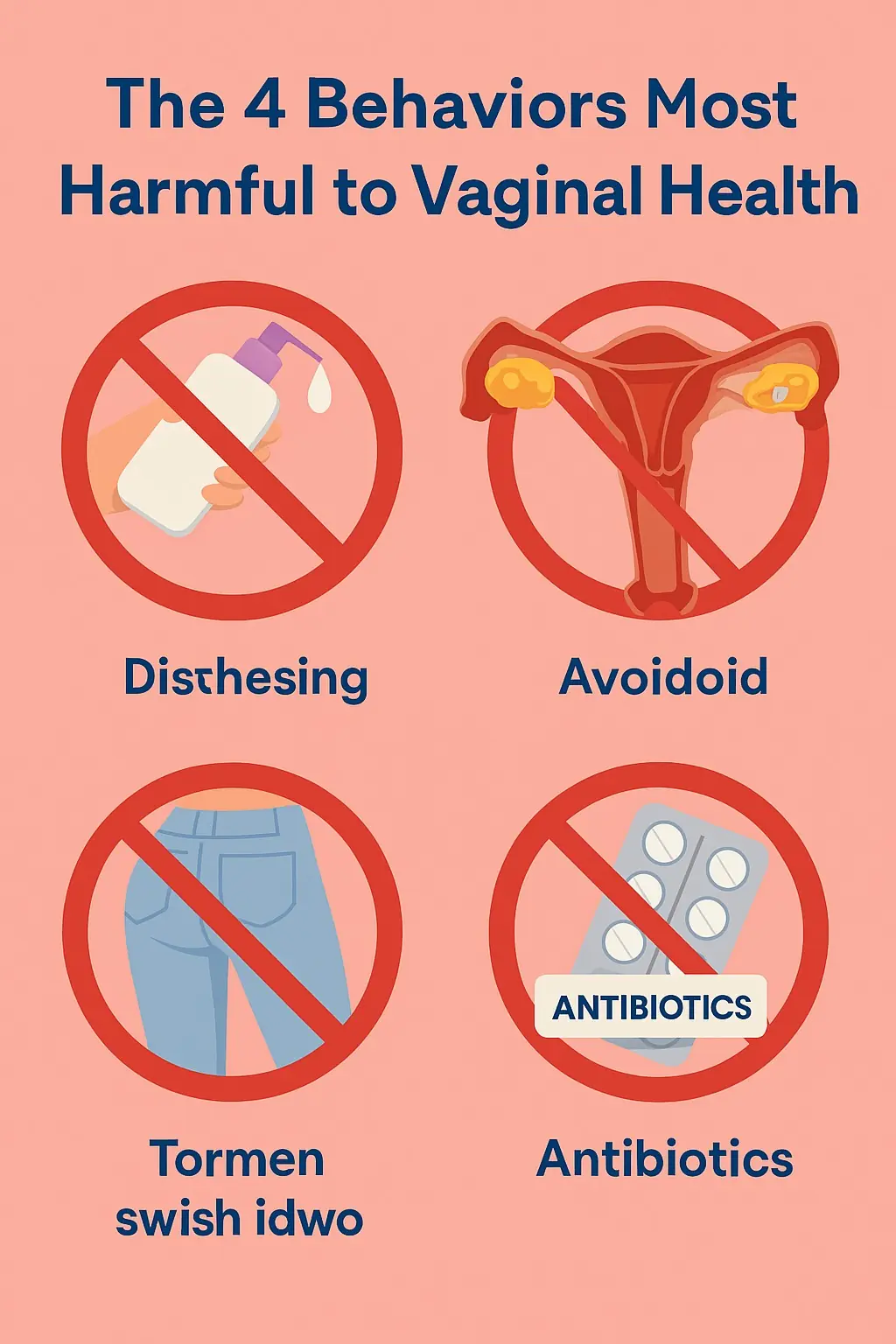
The 4 Habits That Harm Your Vagina the Most – Are You Still Doing Them Often? Stop Immediately After Reading This!

Habits That Make Women Gain Weight – Lack of Exercise Is the Least Important, While the Top Cause Is Something Many Do Every Day

Can Taking One Aspirin a Day Prevent Cardiovascular Disease? A Japanese Study Offers an Answer
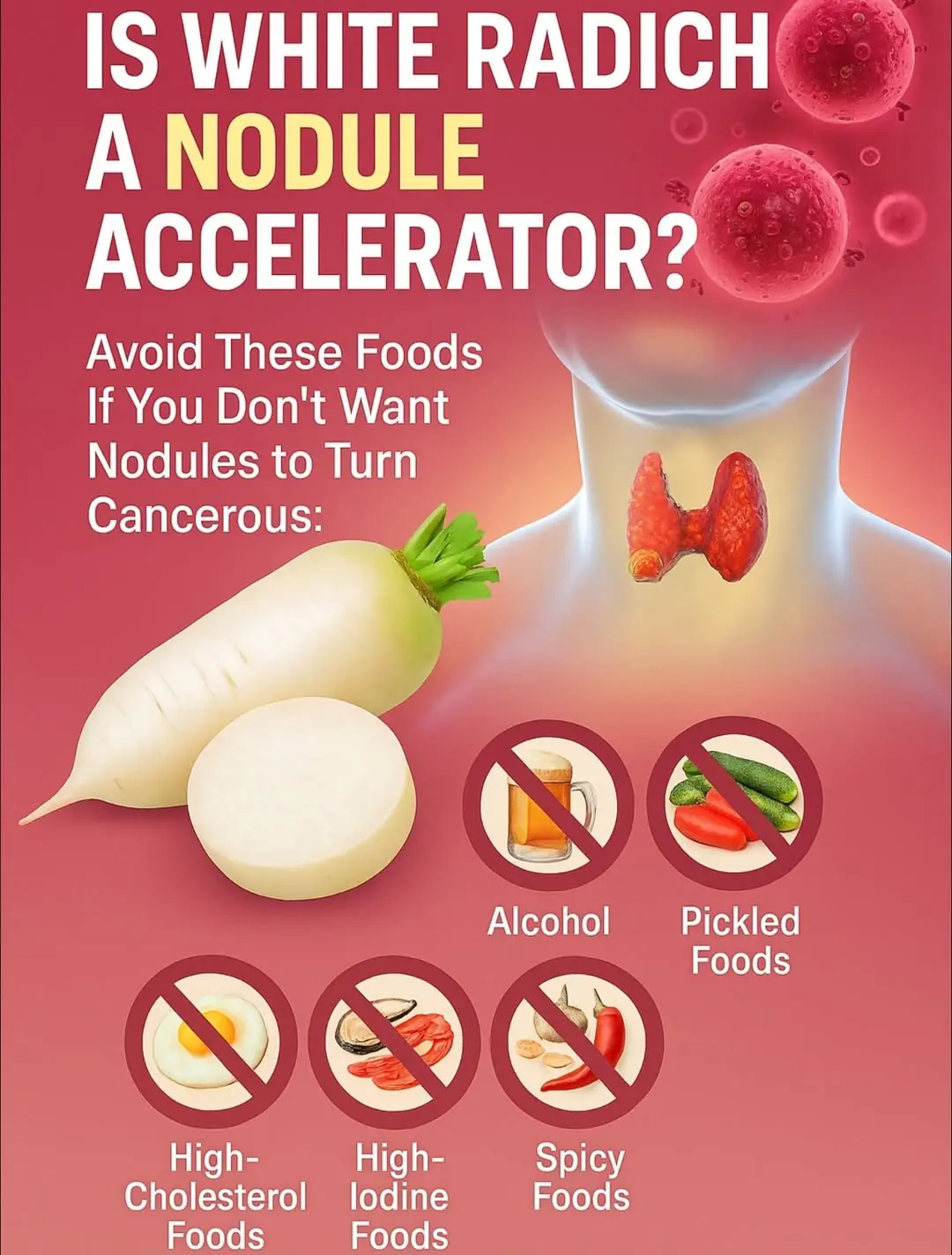
Is White Radish an “Accelerator” for Nodules? Gastroenterologist Warns: Avoid These 5 Foods If You Don’t Want Nodules to Turn Cancerous
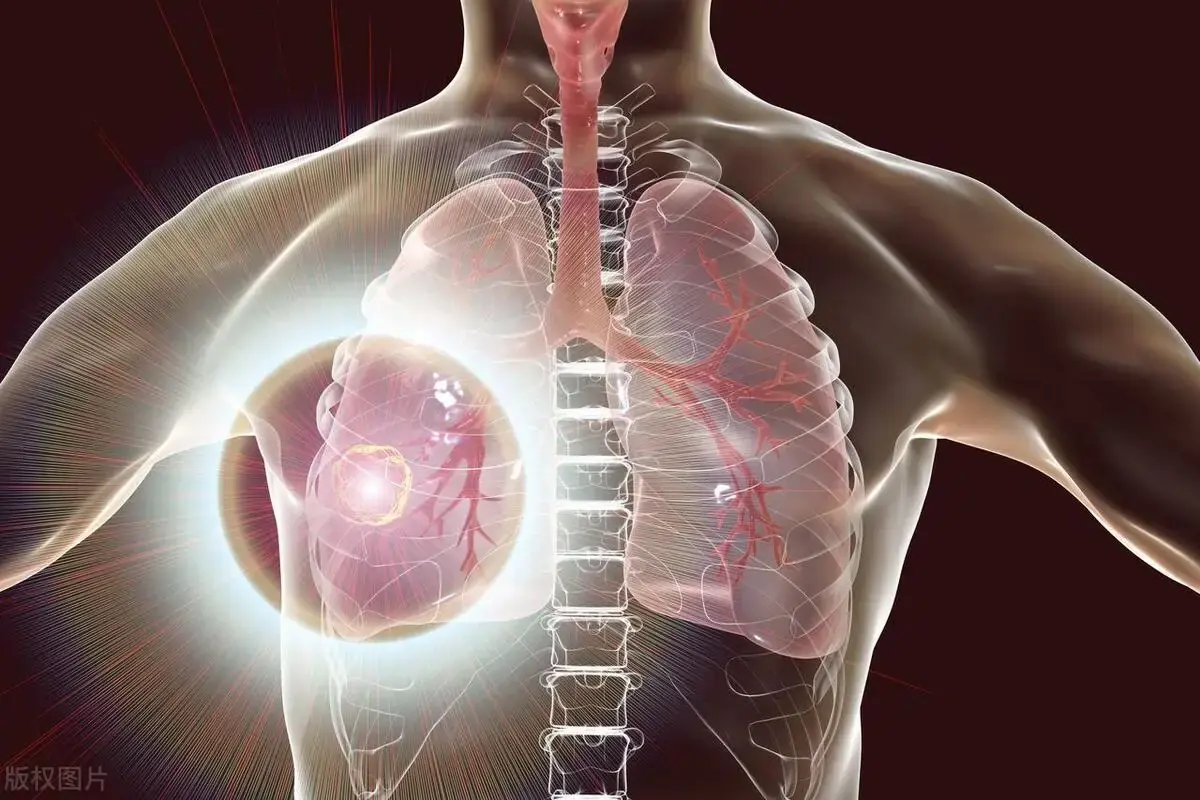
Is Lung Cancer Contagious or Hereditary? Doctors Reveal the Truth You Need to Know

Think Twice Before Dyeing Gray Hair: Eat These 4 Foods Regularly to Potentially Reduce Premature Graying

Spring Must-Haves for a Clean Bloodstream: The Natural Enemies of Blood Toxins! Keep Your Arteries Spotless and Healthy
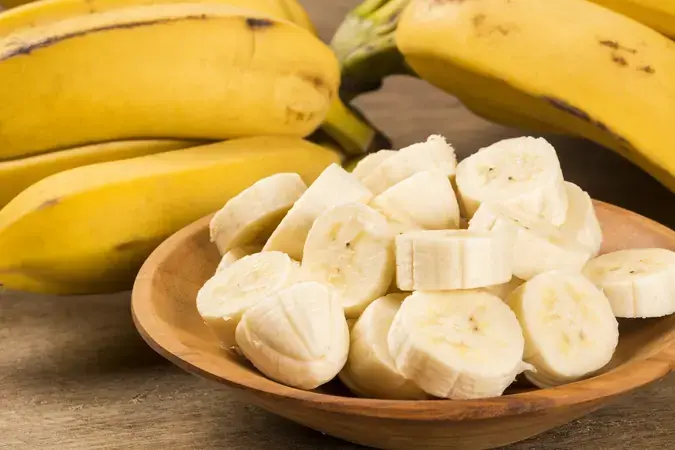
Research Reveals: Eating Bananas Regularly Can Bring These 6 Health Benefits to Seniors

Top 5 Fruits for Health and Longevity — Banana Ranks #4, But the #1 Will Surprise You

Why Does Your Body Suddenly Jerk While Falling Asleep — Like You’re Falling? The Reason Might Surprise You

Top 10 Proven Habits to Slow Aging — Sleep Only Ranks #6! The #1 Will Surprise You

Is "Glue-Injected Meat" Becoming a Hidden Epidemic? Digestive Health Expert Warns: Avoid These 5 Types of Meat — Especially for Your Children’s Sake

If these two parts of the body are black, it means that the life span may not be long. Is it true? Listen to what the doctor says
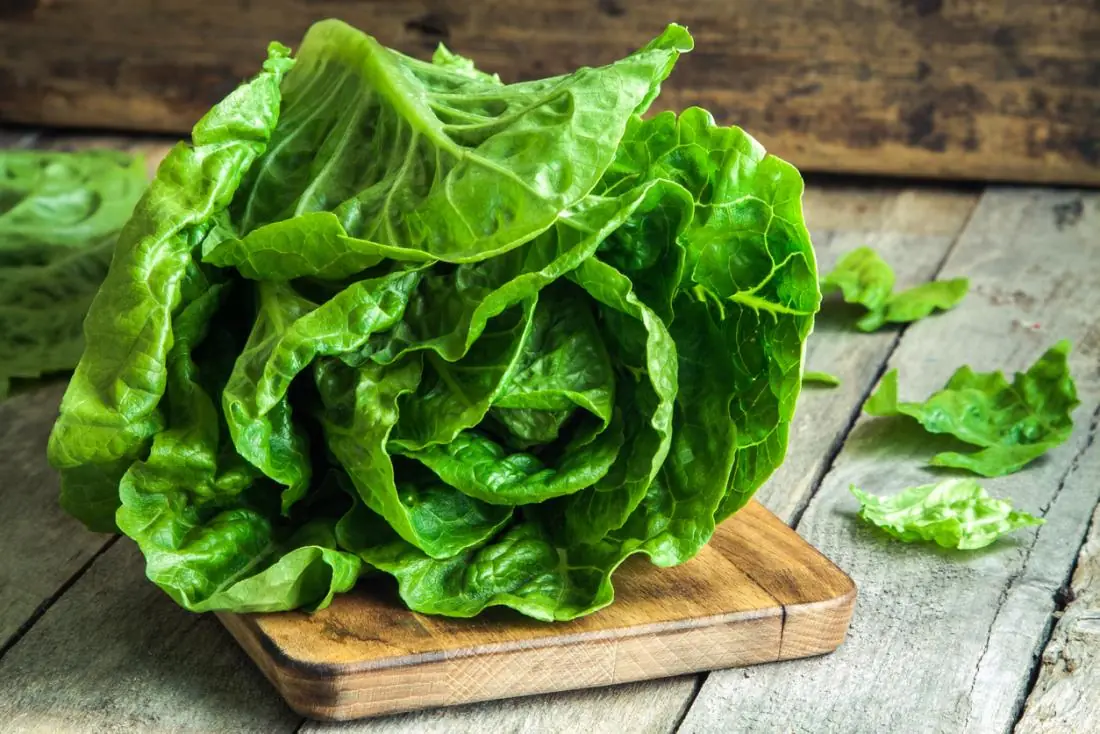
4 Superfoods for Diabetes Management—Affordable Yet Powerful

Sweet Potatoes Are in the Spotlight Again! Doctors Warn: Pay Attention to These Key Points When Eating Them
News Post

WHAT HAPPENS WHEN WE TONGUE KISS…See more

Nature’s Secret: 4 Healing Leaves That Support Metabolism, Immunity & Circulation Naturally

Don’t Drink Coconut Water Before You Know These 11 Secrets!

Pumpkin Seed Milk — The Natural Parasite Cleanser

Fast Rice Water Trick for a Brighter Smile

Morning Drink to Revive Your Kidneys Fast

The Onion Recipe That Could Transform Your Blood Sugar, Support Cleaner Arteries, and Protect Your Heart!

Top 4 Fruits That Help Your Kidneys Flush Out Toxins While You Sleep

Ginger, Clove, and Honey: The Natural Trio Your Body Will Thank You For

Heal 15 Years of Joint Pain Naturally with Turmeric and Honey Tea

This Juice Revived My Grandma’s Energy — Say Goodbye to Fatigue and Body Pain with This Natural Recipe

The Benefits of Eating 2 Boiled Eggs Every Morning: Transform Your Health!

If Your Kidneys Are in Danger, Your Body Will Send You These 8 Signals — Don’t Ignore Them

The Surprising Effects of Avocado on Your Heart and Brain

Ways to Get Over a Man Who Didn’t Value You

I’m 66 but Look 36 — My Secret? Aloe Vera & Ginger for Firm, Smooth Skin

How to Make Okra Water to Treat 17 Health Problems Naturally

Banana and Egg Mask to Look Younger Even in Your 80s

Scent Leaf Secrets Unveiled: 10 Surprising Health Benefits of This Miracle Herb
